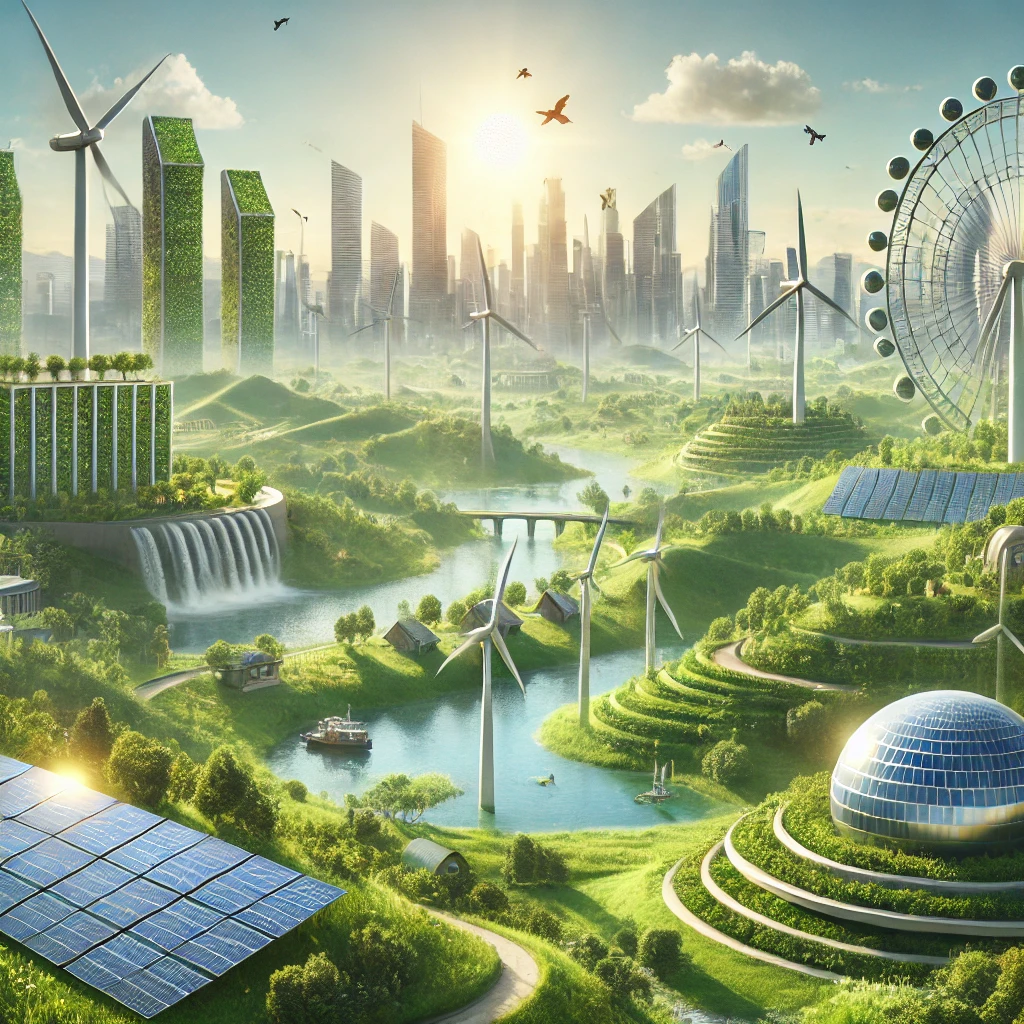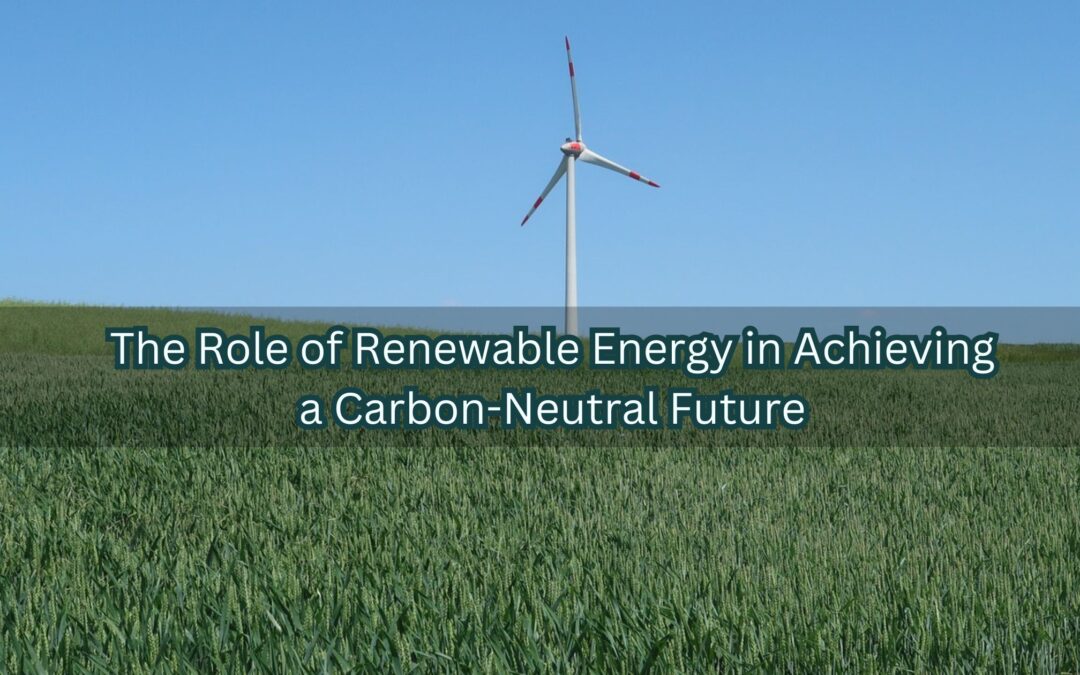The global effort to combat climate change has placed renewable energy at the forefront of achieving a carbon-neutral future. Carbon neutrality, the process of balancing carbon dioxide emissions with an equivalent amount of carbon removal from the atmosphere, is essential in limiting global warming to safe levels. A crucial step in this transition is shifting from fossil fuels to renewable energy sources such as solar, wind, hydropower, and geothermal energy.
How Renewable Energy Contributes to a Carbon-Neutral Future
1. Generating Clean Renewable Energy
One of the primary benefits of renewable energy is its ability to generate electricity without emitting greenhouse gases. Fossil fuels like coal and oil are the leading contributors to global carbon emissions. In contrast, wind turbines and solar panels harness sustainable and abundant natural resources to produce electricity with minimal environmental impact. For example, a solar farm can provide clean energy for decades without releasing carbon emissions, making it a vital solution for reducing reliance on fossil fuels.
2. Reducing Costs and Boosting Economic Growth with Renewable Energy
Moreover, renewable energy offers significant economic benefits. Technological advancements have led to substantial reductions in the costs of solar and wind energy, making them increasingly competitive with traditional energy sources. Additionally, the renewable energy sector creates numerous employment opportunities, including jobs in manufacturing, installation, and maintenance. According to the International Renewable Energy Agency (IRENA), over 12 million people were employed in the renewable energy sector globally in 2021, and this number is expected to grow as the transition accelerates.
Furthermore, investing in renewable energy enhances energy security by reducing dependence on imported fossil fuels. Countries can stabilize their energy supply and protect themselves from fluctuations in global oil and gas markets. For instance, nations with abundant sunlight, such as those in the Middle East and Africa, can leverage solar energy to meet local demand and even export surplus electricity, fostering economic resilience.

Challenges to Overcome
Despite its potential, transitioning to renewable energy presents challenges. One significant issue is the intermittency of solar and wind power, which can lead to reliability concerns. However, advancements in energy storage technologies, such as hydrogen fuel cells and battery storage, are helping to address this challenge. Additionally, modernizing power grids and implementing smart energy management systems further enhance the efficiency and dependability of renewable energy.
Government policies also play a critical role in promoting renewable energy adoption. Investments in research and development, along with tax incentives and subsidies, can accelerate the deployment of renewable energy technologies. Countries like Germany and Denmark have successfully reshaped their energy landscapes through supportive policies, demonstrating the effectiveness of government intervention in driving sustainable energy transitions.
Conclusion: The Power of Renewable Energy for a Sustainable Future
Without a doubt, renewable energy is a cornerstone of achieving a carbon-neutral future. Its environmental benefits, economic potential, and contribution to energy security underscore its importance in the fight against climate change. By addressing existing challenges and increasing investments in renewable energy, the world can move toward a cleaner, more sustainable future.
Want to learn more about how renewable energy is shaping the future? Visit the EAT Community and join the movement for a cleaner planet.



